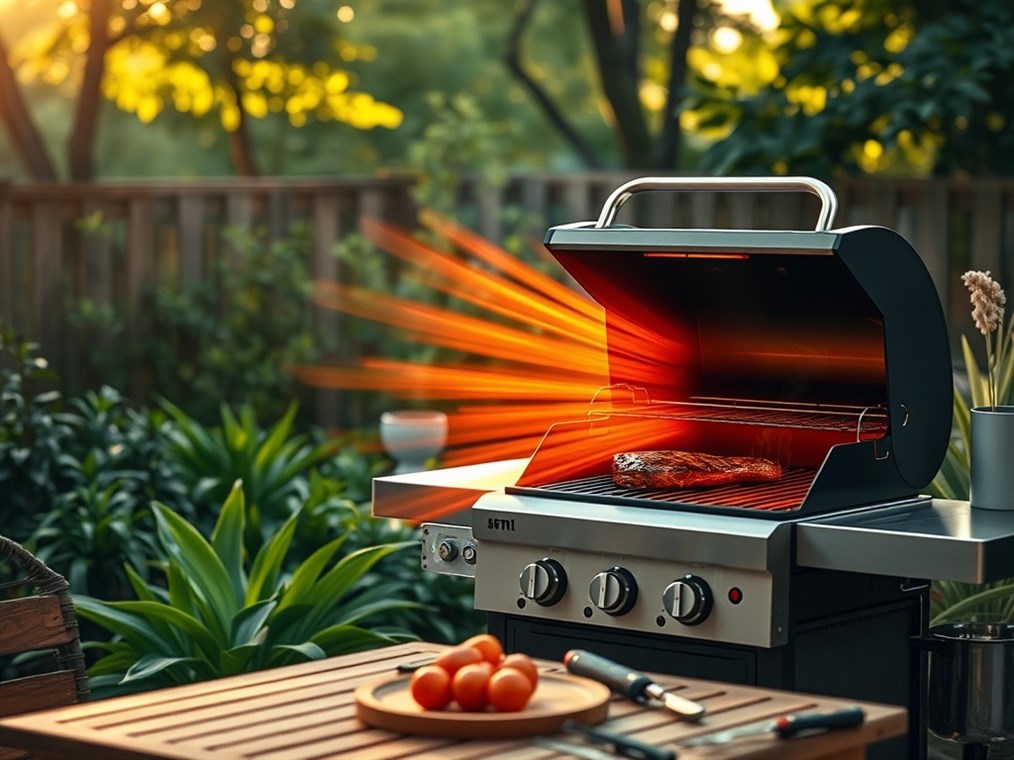Infrared Grills: Do They Really Use Propane? Let’s Clear the Air.
So, you’re thinking about getting an infrared grill, huh? Maybe you’ve heard whispers of steakhouse-quality searing right in your own backyard. But a nagging question pops up: do these high-tech grills actually use propane? Well, the simple answer is often yes, but let’s unpack that a bit. While propane models are super common, you can also find infrared grills that run on natural gas. Consider this your friendly guide to understanding how these grills work and whether propane is part of the equation.
Forget those old-school gas grills that blast hot air at your burgers. Infrared grills are a different beast altogether. Instead of relying on convection (that’s the hot air thing), they use radiant heat—think of it like the sun warming your face. With a traditional gas grill, the burners directly heat the grates. But an infrared grill? It’s got a special element—usually ceramic, metal, or even glass—that the gas burner heats up. This element then cranks out intense infrared radiation that cooks your food directly. The payoff? More even cooking and juicier results. Trust me, your taste buds will thank you.
Propane is the go-to fuel for many infrared grills, and for good reason. It’s easy to get your hands on, and you can take it anywhere. Propane provides the juice to crank up that infrared element to scorching temperatures. We’re talking 700°F (371°C) and sometimes even exceeding a mind-blowing 1,000°F (538°C)! Some can even hit a blistering 1,500 degrees Fahrenheit. This intense heat is what gives you that perfect sear, locking in all those delicious juices and creating a crust that’ll make you the envy of the neighborhood.
So, why all the hype around infrared? What’s so great about them anyway? Here’s the lowdown:
- Faster Than a Rocket: These grills heat up blazingly fast – often in just a couple of minutes. Talk about saving time!
- No More Hot Spots: Say goodbye to unevenly cooked food. Infrared grills spread the heat like a pro, ensuring everything cooks just right.
- Juicy, Juicy, Juicy: Want to keep your food from drying out? Infrared grilling can help you retain up to 35% more of those natural juices.
- Flare-Up? What Flare-Up?: The design minimizes those annoying flare-ups by vaporizing grease on contact.
- Penny-Pinching Power: You might be surprised to learn they’re often more fuel-efficient, using less gas to reach those high temps.
- Steakhouse Secret Weapon: Ever wonder how steakhouses get that perfect sear? Many use infrared grills. Now you can, too.
Now, let’s talk burners. There are a few different types you might encounter:
- Ceramic Kings: These are the most common, with a ceramic surface sitting pretty on top of a stainless steel burner. They’re quick to heat up and deliver that intense searing power.
- Heat Emitter Heroes: These systems ensure the heat is spread evenly across the entire grilling surface, leaving no corner untouched.
- TEC Titans: TEC grills use radiant glass panels to distribute heat like a boss.
- Hybrid Hotshots: Some grills give you the best of both worlds, combining traditional gas burners with an infrared side burner for maximum flexibility.
Before you jump in headfirst, here are a few things to consider about propane infrared grills:
- A Bit of a Splurge: These grills can be pricier than your standard gas grill.
- Practice Makes Perfect: There’s a bit of a learning curve involved. That intense heat requires a little finesse.
- Watchful Eyes Required: Food cooks fast, so keep a close eye to avoid any unwanted charring.
Alright, let’s wrap this up. Infrared grills often rely on propane to generate that amazing radiant heat. They bring a ton of perks to the table, from lightning-fast heating to restaurant-worthy searing. Sure, they might cost a bit more upfront and take a little getting used to, but the reward is seriously delicious food. So, whether you’re a seasoned grilling pro or just starting out, an infrared grill could be your ticket to backyard barbecue stardom.

